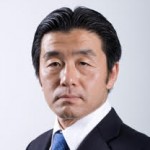This post was contributed by Hiroshi Ishida, Executive Director of the Caux Round Table Japan.
Human Rights are universal, but acceptance should be based on each social context
Human rights are universal and belong to every human being in every human society. However, the “Western” philosophic foundations of human rights are not universally accepted in the Asian region, especially in Japan.
Likewise, business and human rights standards (such as the United Nations Guiding Principles on Business and Human Rights, UNGPs) are universally accepted. Yet, their implementation should be based on each different context.
While respect for fundamental human rights is one of the three principles enshrined in Japanese Constitution, our acceptance of human rights does not come from Christianity but from our original philosophy of “Harmony is the Greatest of Virtues.” This implies the relevance of nature and civil society for our business environment.
This is also the reason why many Japanese companies are using the similar concept of “KYOSEI”, which came from Confucianism and means living and working together for the common good. Based on this philosophy, Japanese people have exhibited tolerance to other ideas/opinions, and developed trust within the community through dialogue/discussion.
Our activity to implement the Guiding Principles in Japan: Human Rights Due Diligence Workshops
Based on this context, the Caux Round Table Japan started its work to implement “Business and Human Rights” in 2012 by establishing a platform to discuss human rights and their relevance to business operations. The platform is formed together with business, NGOs and academic institutions.
Before kicking off our workshops, I always convince all participants that we have to keep “Fairness”, “Integrity” and “Honesty” in our mind as a fundamental principle. In the workshops, we aim to highlight our underlying <inner> and <outer> perceptions, and uncover different perceptions between NGOs and companies, which both are often unaware of in their narrow and entrenched perspectives. Interestingly, the alternative way of perceptions raised by NGOs often helps to identify the root cause of a problem for companies.
With this aim, we carefully try to create the platform as a secure space to facilitate open discussion maximizing the participants’ liberal mind, and respect their diverse values in the discussion.
I remember a very interesting discussion regarding a region where frequent pirate attacks occur. Companies were irritated by the pirates, who obstructed shipping route, and concentrated their “human rights” efforts to the protection of sailors on board (employees’ health and safety rights). However, NGOs considered that poverty in the community was the main cause of the attacks, and companies were expected to bring positive impacts to improve their economic situation. For NGOs, the priority was for companies to strive against poverty eradication and to improve a context where people had no choice but to become pirates (community development to improve their rights to a peaceful life). This case showed that companies often distinguish employees as inner and pirates as outer issues, but the root cause can be appropriately identified only if companies bring the wider context, <outer> perceptions, into their operations.
Our programme consists of four steps.
- Understanding the context in which human rights issues arise
- Reviewing and identifying adverse human rights impacts that can arise from business operations
- Integrating perspectives from both corporations and stakeholders at multi-stakeholder discussions
- Disclosing discussion documents and collecting public comments
The programme is now scaling up, attracting 98 people from 48 companies and 17 people from 10 other organisations this year. Next year will mark its 5th year.
What encourage us is that people from diverse corporate divisions, not only CSR department, but from HR, Business Strategy and Procurement departments, are also joining the programme.
Progress passes through establishing grievance mechanisms in Asia/ASEAN for Japanese companies
Our next ambition is to attract people across more diverse divisions, and share this programme to Japanese overseas subsidiaries. We have recently started our new endeavour together with our partners in Thailand. We will start to provide the workshop for Japanese companies in Thailand next year, and establish an effective grievance mechanism for their suppliers in Thailand.
Hidden agendas lie here. In the run up to the Tokyo 2020 Olympic Games, we anticipate that Japanese companies will face intense scrutiny for their ethical business conduct, in particular regarding their respect for human rights across the supply chain. It is exactly to prepare for this scrutiny that we look forward to our initial activities from Thailand.
We hope our initial grievance mechanisms will facilitate effective communication with suppliers and communities. This should work to enhance companies’ ability to respect human rights, whilst contributing to decrease business risks.
CRT Japan is dedicated to develop a system or mechanism of “Business and Human Rights Prevention” within the Asian value context. I strongly believe that without preventing Human Rights abuses, Japanese company will not able to mitigate their Human Rights risks.
 Hiroshi Ishida is the Executive Director of the Caux Round Table Japan (CRT Japan), Visiting Professor at Kyushu University Business School and Fellow at Center for Inclusive Business, CSR Tokyo International University, Developments in the Field Panel, Business and Human Rights Journal, Cambridge University Press and Soft Bank Investment University.
Hiroshi Ishida is the Executive Director of the Caux Round Table Japan (CRT Japan), Visiting Professor at Kyushu University Business School and Fellow at Center for Inclusive Business, CSR Tokyo International University, Developments in the Field Panel, Business and Human Rights Journal, Cambridge University Press and Soft Bank Investment University.



2 Comments